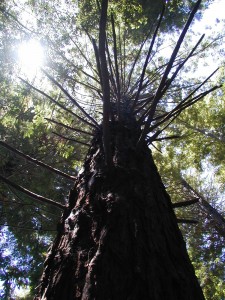 As a teacher and student of Bujinkan Budo Taijutsu, I often hear the same question over and over again – how can I improve my skill? What should I practice to get better? Since I remember myself asking that question several times (probably several hundred times if you ask some people!) to my teacher and seniors in the art, I always take time to give a thoughtful and honest answer. And, my answer to these sincere seekers is always the same – practice the basics.
As a teacher and student of Bujinkan Budo Taijutsu, I often hear the same question over and over again – how can I improve my skill? What should I practice to get better? Since I remember myself asking that question several times (probably several hundred times if you ask some people!) to my teacher and seniors in the art, I always take time to give a thoughtful and honest answer. And, my answer to these sincere seekers is always the same – practice the basics.
Basic Does NOT Equal Simple
I think maybe the term “basic” itself is a little misleading. When someone says, basic, most of us immediately translate it in our minds to “simple”. Nothing could be further from the truth for the basics of our martial art. What I’d like us to do today for the purposes of our discussion is to suspend the judgement that basic = simple. Instead, replace the word basic with foundational. How do you continue to build upon a skill set indefinitely? Well, the foundation must be strong. It must be broad. And, to keep going higher still, it must be deep.
Each January, every year, for the past 20 years I have been training in the Bujinakn, my teacher, Jack Hoban, spends the entire month with us reviewing nothing but the basics of our art. This sets the tone for the year and helps to increase the capacity of the entire class to absorb the higher level lessons for that year. Guess what? Invariably, I learn something new each time Jack teaches. Every year, just by practicing the basics… eh… excuse me… the foundational training of our system new ideas, new concepts are born as we go deeper into the details and application of the techniques.
Shu Ha Ri
In traditional Japanese arts, there’s a concept called Shu-Ha-Ri. This is a method of progression, or more accurately, a cycle of progression, for learning any art.
Shu – “Protect” the form.
Ha – “Break” the form
Ri – “Leave behind” the form
This process is a continuous cycle in our Bujinakn training. In order to progress higher in the art, our base must be solid, so we protect the form. In order to understand the art, we must begin to break the form. In order to master the art, we must leave the form behind. Yet, this is not a linear progression at all! Working on the foundation is never a step backwards. Think of it more as a ratcheting back to spring forward. Want to surpass your current level? Strengthen the foundation.
Think you know the basics? Think again.
I will be sharing my interpretation and experience of the foundational skills of Bujinkan Budo Taijutsu here. Please come and check it out!





4 Comments
David C. Furukawa
April 1, 2010Hi Jon,
I like Jack’s methodology of covering the basics in January.Can you be a little more specific,since the fundamentals in the Bujinkan is a cirriculum in itself.Take care!
Dave
Craig Gray
April 2, 2010“At first you will think of practice as a limited part of your life. In time you will realize that everything you do is part of your practice.”
~Baba Ram Dass
Judd Bank
April 3, 2010Great Article Jon!
[…] spend tons of time in the trenches working on the basics (Basics Ain’t So Basic- see post here). We all understand the analogy of building a house on sand. The foundation is soft and […]
Leave A Response